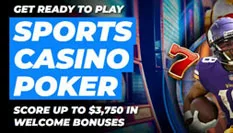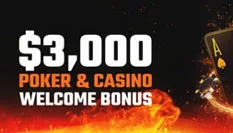The Ultimate Guide to Tipping in Poker Games

In the realm of live poker, tipping dealers is an established custom that is not simply a mere courtesy. It’s deeply ingrained in the industry – so much so that it’s a vital part of a dealer’s paycheck.
Some might look at tipping as an optional gesture, but seasoned players and industry professionals know that tipping as an integral part of the live poker experience.
Table of Contents
First Things First – Why Should You Tip Your Poker Dealer?
The rationale behind tipping dealers stems from the unique nature of their profession. Unlike conventional service roles, dealers’ earnings are not solely dependent on a fixed wage. A significant portion of their income is derived from the gratuities received from players, making tips an essential supplement to their base salaries.
Dealing poker is a demanding task that requires a specific skill set. Dealers have to possess a keen understanding of the game’s intricacies, maintain a brisk pace to keep the action flowing, and effectively manage the dynamics at the table.
They aren’t just handing out cards; they play a pivotal role in ensuring a smooth and enjoyable experience for all participants. Heck, when I tried to work as a poker dealer, I struggled to even do the mental math necessary to divide pots and change chips.
The Ongoing Debate: Mandatory or Optional?
The question of whether tipping should be mandatory or optional has long been a subject of debate within the poker community. While some argue that an automatic allocation from the prize pool is a fair practice, ensuring dealers receive adequate compensation, others contend that tips should remain voluntary, allowing players to reward exceptional service at their discretion.
Proponents of mandatory tipping highlight the importance of providing dealers with a guaranteed income stream, particularly in high-stakes tournaments where players may be less inclined to tip generously. This approach aims to prevent situations where dealers are left without appropriate remuneration, regardless of players’ actions.
On the other hand, those in favor of optional tipping assert that the essence of a tip lies in its voluntary nature. They believe that players should have the freedom to determine the appropriate gratuity based on the quality of service received, fostering a culture of excellence and incentivizing dealers to deliver their best performance.
How Much Should You Tip Your Poker Dealer
While opinions may differ, the poker industry has established certain norms and guidelines regarding tipping practices. Many reputable tournaments and events automatically withhold a predetermined percentage of the prize pool, typically ranging from 1% to 3%, to compensate the dealers and tournament staff.
In cash games, the industry-standard varies, but a common guideline is to tip $1 per pot won, with the option to increase the amount for larger pots or exceptional service.
Some players prefer a percentage-based approach, tipping anywhere from 1% to 4% of their winnings,while others adopt a more flexible strategy, adjusting their tips based on the quality of the dealing and the overall experience.

Striking the Right Balance: Fair Tipping
While tipping practices can vary based on individual preferences and circumstances, there are certain strategies that players can employ to strike a fair balance and so that their tips align with industry norms and their personal experience.
Tip Consistently for Good Service
One effective approach is to establish a consistent tipping pattern for good service. This could involve tipping a fixed amount per pot won (e.g., $1 or $2) or a percentage of winnings (e.g., 2-3%). By keeping it consistent, players demonstrate their appreciation for the dealer’s ongoing efforts.
Adjust Tips Based on Service Quality
While consistency is important, players should also be willing to adjust their tips based on the quality of service received. If a dealer consistently exhibits exceptional professionalism, efficiency, and table management skills, players may consider increasing their tips as a token of appreciation.
Conversely, if a dealer’s performance is subpar or fails to meet reasonable expectations, players may choose to reduce or withhold their tips accordingly. You shouldn’t feel bad if you tip a little less than you normally would if things are a little shoddy.
However, I do not advise not tipping at all – unless the dealer does something truly egregious and, at that point, they will likely get a dressing down from management anyways.
Consider the Stakes and Buy-ins
When determining appropriate tipping amounts, consider the stakes and buy-ins of the game being played. In higher-stakes games or tournaments with substantial buy-ins you might opt to tip more generously, as the potential winnings are greater, and the dealers’ efforts in managing high-stakes action are more demanding.
On the other hand, in lower-stakes games or tournaments with smaller buy-ins, players may need to be more mindful of their bankroll management and adjust their tipping accordingly.
This is generally understood among dealers and you won’t be looked at as a cheapskate. It also helps that tips are pooled in the vast majority of poker rooms, so the disparity between high- and low-stakes tipping balances out in the end.
What Do Players Consider When Tipping?
I can tell you until I’m blue in the face what is generally understood to be fair poker dealer tipping practices, but what do players base their tips on, actually? Based on the time I’ve spent in poker rooms, there are a few factors:
Pot Size and Winnings
One of the most significant determinants of tipping amounts is the size of the pot won and the overall winnings accrued during a session. Of course, you are generally more inclined to tip generously when you’ve won a ton; that emotional high of a big windfall often translates into a desire to share the spoils.
Conversely, players may be more conservative with their tips when playing at lower stakes or experiencing a losing session, as their bankroll management takes precedence.
Dealer’s Performance and Professionalism
The quality of service provided by the dealer is another crucial factor that influences tipping decisions. Players are more likely to reward dealers who are friendly, professional and keep the game moving along smoothly. Dealers who demonstrate a deep understanding of the game, provide clear explanations when needed, and create a welcoming atmosphere are often tipped more generously.
Conversely, dealers who exhibit poor attitude, make frequent mistakes, or fail to maintain control over the table may receive smaller tips or, in extreme cases, no tip at all.
Player’s Bankroll and Mindset
A player’s bankroll and overall mindset can also play a role in their tipping behavior. Players with larger bankrolls or those who view poker as a recreational activity may be more inclined to tip generously, perceiving it as a means of enhancing the overall experience and contributing to the dealers’ well-being.
On the other hand, players operating with smaller bankrolls or those who approach poker as a strictly professional endeavor may prioritize bankroll management over generous tipping. These players may adopt a more conservative approach, tipping within reasonable limits to avoid eroding their potential profits. It might not be entirely fair but it is very common.
Table Dynamics and Camaraderie
The dynamics at the table and the sense of camaraderie among players can influence tipping decisions. The dealer has a huge impact on the vibes and, when there’s positive and friendly atmosphere, players may be more inclined to tip generously.

However, in tense or confrontational situations, players may be less inclined to tip or may even withhold tips as a form of expressing dissatisfaction with the overall experience. This isn’t ideal and, in many cases, it’s outside of the dealer’s control. I didn’t say it was right; I just said it happens sometimes.
Common Misconceptions
Despite the widespread acceptance of tipping in the poker industry, certain misconceptions and concerns persist that really mess with the bottom line of poker dealers. Let’s take a look at some of these, so we can promote a more informed tipping culture.
“Dealers are Already Paid By the Casino”
One common misconception is that dealers receive adequate compensation from the casino or card room – so that would make tips unnecessary, right? Right – if that were the case. However, it is dealers’ base salaries are pretty modest, and tips constitute a significant portion of their overall income.
The average service worker salary in the USA is just over $30,000. The national average for poker dealers falls below that at $27,959.
By tipping, players acknowledge the unique challenges and skills required in dealing poker and contribute to ensuring that dealers receive fair remuneration for their efforts.
“The Rake is Already Too High”
Another concern voiced by some players is that the rake in live games is already too damn high, making it challenging to justify additional expenses in the form of tips. Yes – this is a valid concern. But, you have to separate the issue of how expensive rake is getting from the practice of tipping.
The rake is a fee charged by the casino or card room to generate revenue and cover operational costs. It is not directly tied to the compensation of dealers.
“Dealers Should Just Get Another Job”
Some individuals argue that if dealers are dissatisfied with their compensation, they should seek alternative employment opportunities. However, this perspective fails to recognize the specialized skills and passion that many dealers possess for the poker industry.
Dealing poker is not merely a job for many individuals; it is a vocation that combines their love for the game with their ability to contribute to the overall experience. In fact, I’ve known many aspiring poker pros who worked as dealers to build their bankrolls, network and simply be around the game that they love so much.
How Do We Spread the Word?
Promoting a positive tipping culture within the poker community requires a collective effort from players, dealers, and industry stakeholders. It would be a great thing to see the community come together to ensure that the dealers who are the reason they’re able to enjoy a game of poker get the compensation they deserve.
Dealer Education and Training
Investing in dealer education and training programs can significantly enhance the overall quality of service provided at poker tables and give those who might be a bit hesitant about tipping more reason to throw a few chips the dealer’s way. Well-trained dealers not only contribute to a more enjoyable experience for players but also increase the likelihood of receiving fair and generous tips, creating a virtuous cycle that benefits both parties.
I’ve been to many poker rooms where the dealers have just been thrown into the deep end with very little training. You don’t realize how much of the live poker experience hinges on the dealer being good at their job – and, that starts with the employer.
Player Awareness
Players can play a pivotal role in promoting a positive tipping culture. If you’ve got a stingy player at your table who seems averse to tipping, let them know the score and maybe rattle off a few of the points I’ve made here.
Industry Collaboration and Transparency
Collaboration and transparency among industry stakeholders, including casinos, card rooms, tournament organizers, and player advocacy groups, can help establish clear guidelines and best practices regarding tipping.
Increased transparency surrounding tipping practices, such as clearly communicating the allocation of fees or percentages withheld for dealer compensation, can go a long way to ensuring that players are aware of the fact that tipping is essential.

Bethany has been working in online gambling for over 13 years. She got her start in the industry as her first job after graduating from the Professional Writing Program at York University. Having written for many online gaming publications and worked with top casino operators, she has unique insight into the gambling market. Bethany maintains a personal interest in iGaming as she continues to play poker online as a hobby.



